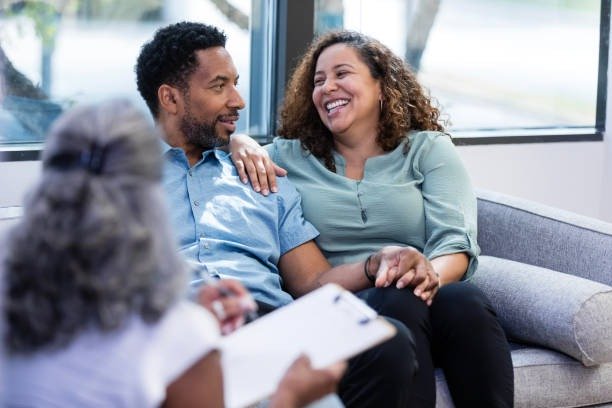Communication is the backbone of any relationship, be it romantic, familial, or platonic. Yet, it’s one of the most common areas where even the closest of partners may struggle. Whether it’s misunderstanding a partner’s needs or being unable to express our own, poor communication can lead to fractures in the bond we often hold most dear. Let’s explore effective, therapist-endorsed strategies for enhancing communication in relationships.
1. Recognizing Communication Barriers
Before we head into improving communication, it’s important to identify the hurdles that may exist. Common barriers include:
-
Assumptions and stereotypes
-
Past trauma or unresolved conflicts
-
Cultural differences
-
Emotion-driven responses
-
Lack of active listening
Acknowledging these barriers is the first step toward removing them and nurturing a healthier dialogue.
2. Practicing Active Listening
Active listening means fully concentrating, understanding, and responding to what your partner is saying. It goes beyond hearing words; it’s about understanding the emotions and intentions behind them. Here’s how you can start:
-
Make eye contact and stay present in the conversation.
-
Resist the urge to interrupt with your thoughts or advice.
-
Ask clarifying questions to ensure comprehension.
-
Reflect on what you’ve heard to show understanding.
3. The Magic of “I” Statements
Using “I” statements instead of “you” statements can transform the dynamic of a conversation. For example, saying, “I feel hurt when we don’t spend much time together,” softens the conversation and reduces defensiveness compared to “You never spend time with me.”
Integrating “I” Statements
To effectively use “I” statements, follow these guidelines:
-
Express your thoughts and feelings clearly.
-
Focus on specific behaviors rather than personal criticism.
-
Offer potential solutions or compromises.
4. Creating a Safe Space for Open Dialogue
Trust forms the foundation of effective communication. It’s essential to create an environment where both partners feel safe to express their thoughts without fear of judgment or backlash. Tips for creating this safe space include:
-
Avoid interrupting or interjecting during conversations.
-
Maintain confidentiality about what’s shared.
-
Acknowledge each other’s feelings, even if you disagree.
5. Understanding Emotional Triggers
Recognizing and understanding emotional triggers can prevent heated arguments and hurt feelings. Strategies to manage emotional triggers include:
-
Identify what upsets you most in conversations.
-
Communicate your triggers to your partner.
-
Work on coping mechanisms and mindful responses.
In many cases, seeking guidance from a professional, such as a therapist in Nashville, can help uncover underlying issues and develop emotional strategies.
6. The Role of Non-Verbal Communication
Non-verbal cues play a crucial role in helping us communicate effectively. Body language, facial expressions, and gestures can often say more than words. Practice being mindful of these non-verbal signals:
-
Maintain eye contact to show engagement.
-
Use open and inviting body language.
-
Pay attention to your partner’s non-verbal cues.
7. Setting Dedicated Time for Conversations
In a busy world, finding time for meaningful conversations can be challenging. Allocating a specific time can ensure that both partners are fully present and engaged. Consider setting a weekly “talk time” to discuss feelings, concerns, and plans.
8. Seeking Professional Help
Sometimes, even the most sincere efforts might not overcome deep-seated communication issues. In these situations, seeking help from professionals, such as those offering marriage counseling in Nashville, can provide invaluable guidance and tools for rejuvenating your relationship.
9. Building Empathy and Understanding
A little empathy goes a long way. By stepping into your partner’s shoes, you can better understand and appreciate their perspective. This nurtures a deeper connection and fosters a more empathetic relationship.
-
Practice active empathy – listen to understand, not to respond.
-
Acknowledge your partner’s feelings and repeat them back.
-
Consider their perspective before responding.
10. Maintaining Consistency and Realistic Expectations
Consistency is key to effective communication. Regular positive interactions help build trust and reliability. It’s equally important to maintain realistic expectations about what improved communication can achieve. Like any skill, effective communication develops over time with persistence and effort. Each relationship is unique, and as a dedicated therapist in Nashville might suggest, understanding how to apply these strategies in your context can be beneficial. Being patient and open-minded is crucial on this journey to better understanding and deeper connections.
11. Embracing Technology Wisely
In today’s digital age, technology can both aid and hinder communication. While it allows for easy connection, it can also lead to misunderstandings due to the lack of non-verbal cues. Here’s how to use technology effectively:
-
Use video calls for more personal interaction when apart.
-
Be mindful of tone and intent in text messages.
-
Set boundaries around tech use to ensure it doesn’t replace valuable in-person communication.
12. Celebrating Communication Milestones
As you work toward improving communication, take time to recognize and celebrate progress and milestones. This acknowledgment can strengthen bonds and motivate continued growth. Consider these ways to celebrate:
-
Reflect on difficult conversations that led to positive outcomes.
-
Appreciate moments where active listening was successfully practiced.
-
Celebrate small victories together to reinforce the journey.
By integrating these additional strategies, partners can create a more robust communication framework that adapts to modern challenges while celebrating growth along the way.
Key Takeaways
Improving communication in relationships is a continuous journey requiring patience, empathy, and commitment. By recognizing barriers, practicing active listening, and wisely embracing technology, couples can build stronger connections and foster understanding. Creating a safe space and celebrating milestones further enhance this bond. Remember, each step toward better communication enriches the relationship, laying the foundation for lasting trust, mutual respect, and deep emotional intimacy.
